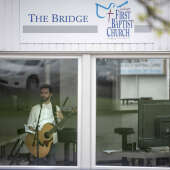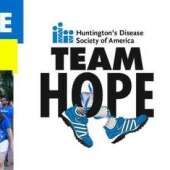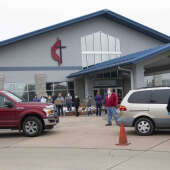Satire: We need social distancing on social media
Martha gets serious
So this is what lab rats must feel like. They run mazes hoping to find the exit and score a dopamine hit. We post things on social media hoping to get a "like" and score a dopamine hit.
Safe at home while we wait out the pandemic, our every move online is tracked, compiled, tabulated, aggregated, correlated and analyzed, plus other verbs we don't understand. We're in the middle of the greatest sociology experiment in the history of sociology experiments.
The optimist would say we are lucky compared to previous generations that faced quarantines. We're told that we can save the world by simply acting as couch potatoes. As the joke goes, Americans have been training our whole lives for this event.
Thanks to the Internet, who needs meatspace socializing when you can interact virtually with any person or business in the world?
Well, I'm not so sure. The early results of our shelter-at-home experiment are not encouraging. Here are some observations:
1. The only thing more contagious than coronavirus is a hoax about coronavirus. Bad medical advice gets posted and reposted endlessly on social media, while you have to work awfully hard to find the truth from an authoritative source. If gargling hot water really was enough to kill coronavirus, don't you think we'd learn about it from something other than a badly pixelated graphic with multiple typos? In this era, the truth gets around on horseback while misinformation travels at Warp 6.
2. Social media has seen exponential growth in the number of people who claim to be experts on exponential growth. It's unnerving to discover that your seemingly down-to-earth neighbors, who probably hated math classes in school, have suddenly become masters of statistical analysis and viral epidemiology (previously they were experts on constitutional law and impeachment proceedings). After studying the COVID-19 statistics for five minutes, they've found proof of an insidious worldwide conspiracy, representing the greatest threat to the economy and/or democracy since the invention of the economy and/or democracy. Or something like that.
3. Trash talk has never been cheaper. Without live sports, social media has become fixated on the only remaining game in town: Team Blue vs. Team Red. Every piece of breaking news -- no matter how exaggerated or taken out of context -- is dissected to see how much it could hurt or help President Trump. The 2016 election never actually ended on the Internet, and now there's even more participants on both sides armed with an endless supply of free time, trash talk and misinformation.
The main takeaway from this pandemic is that social media is a breeding ground for hoaxes, conspiracy theories and misinformation. These scourges behave just like viruses: spreading, mutating and evolving. We've heard all about social distancing and contact tracing as defenses against COVID-19. Why not apply the same techniques to reduce the spread of toxic contagions on the Internet?
First, we should stop congregating on a handful of all-too-powerful websites and apps. The early days of the Internet saw a diverse number of personal homepages which were authentic (although filled with hideous background clip art and auto-playing music). Now, everything is controlled by a small cadre of platforms with algorithms that prioritize "engagement" above all else. Outrage breeds engagement, so outrageous behavior is rewarded. To fix this, social media needs to spread out.
Second, all platforms should offer contact tracing for any post that is publicly shared. If you see something that is clearly bogus, you should be able to click a button that will generate a list of everybody who previously "engaged" with that post, going all the way back to the first person who created it. Don't tell me that Facebook, with its massive surveillance apparatus and yottabytes of data, wouldn't be able to offer this level of detail. Armed with this tool, it becomes possible to identify the originators of these hoaxes, as well as the "super spreaders," and quarantine them all.
Just like how a mid-life crisis causes people to re-evaluate their life choices, our pandemic should cause people to re-evaluate their relationship with social media.
































